Helicopters from 820 Naval Air Squadron have been defending HMS Queen Elizabeth against Norwegian submarine HNoMS Utstein in an exercise.
HMS Queen Elizabeth and her Carrier Strike Group have been exercising with Norwegian forces.
Interoperable by design.
International by intent.Our aircraft capability gives us effect in the air, on the sea, and beneath the waves. It’s our operations with our allies, however, that gives us global reach. #KingsFlagship #GlobalModernReady #UKCSG23 pic.twitter.com/dpOnXdk2at
— HMS Queen Elizabeth (@HMSQNLZ) November 6, 2023
820 NAS tweeted:
“SUB HUNT We’ve been up against HNoMS Utstein. Her mission: sink@HMSQNLZ. Our mission: stop her. The exercises tested our crews’ efficiency, skill and tactical decision making. We also got to stretch our legs fighting alongside @RoyalAirForce P8 Poseidons.”
SUB HUNT
We’ve been up against HNoMS Utstein. Her mission: sink @HMSQNLZ. Our mission: stop her.
The exercises tested our crews’ efficiency, skill and tactical decision making.
We also got to stretch our legs fighting alongside @RoyalAirForce P8 Poseidons.#UKCSG23 #FLYNAVY pic.twitter.com/7hC5GESLTJ
— 820 Naval Air Squadron (@820NAS) November 4, 2023
The carrier recently left Portsmouth for minor repairs and a logistics stop.
Farewell, Portsmouth! After a brief logistics stop we’re back to sea to resume our NATO tasking with our allies and partners in the North Sea. We’ve achieved a lot so far, but there’s much more to come!#KingsFlagship #UKCSG23 #StrongerTogether pic.twitter.com/HsrHN8nSRL
— HMS Queen Elizabeth (@HMSQNLZ) November 3, 2023
The UK Carrier Strike Group, led by flagship HMS Queen Elizabeth, recently completed the first phase of its autumn deployment. This involved participating in a series of simulated strike missions in the North Sea and Norwegian Sea alongside international naval partners.
“HMS Queen Elizabeth and her embarked jets and helicopters have proven their ability to provide the “punch” of the UK Carrier Strike Group during a series of simulated strike missions alongside international partners”, the press release stated.
Joining the aircraft carrier for these combat simulations were several ships from the UK and allied nations. Among these were the Type 45 destroyer HMS Diamond, Royal Fleet Auxiliary tanker RFA Tideforce, Norwegian ships HNoMS Otto Sverdrup and HNoMS Maud, Dutch ships HNLMS De Zeven Provincien and HNLMS Van Amstel, and the Belgian frigate BNS Louise Marie.
The exercises featured HMS Queen Elizabeth’s F-35 Lightning fighter jets from 617 Squadron, Merlin helicopters from 820 Naval Air Squadron, and Wildcat helicopters from 815 and 847 Naval Air Squadrons. Their missions varied, ranging from defending against aerial threats to suppressing enemy air defences and executing strike attacks.
Additionally, HMS Queen Elizabeth and her Carrier Strike Group showcased their medical capabilities, including advanced resuscitation techniques, trauma surgery, and casualty evacuations.
The next phase of the deployment will feature UK forces collaborating with ships and personnel from Joint Expeditionary Force (JEF) nations, which include countries such as Denmark, Estonia, Finland, Latvia, Lithuania, the Netherlands, Norway, and Sweden.
Commodore James Blackmore, Commander of the UK Carrier Strike Group, was quoted as saying, “CSG23 is off to a great start. Integrated training within the air and maritime environments, and alongside our European allies, has demonstrated the capability and agility of UK Carrier Strike.”
“Integrated training within the air and maritime environments, and alongside our European allies, has demonstrated the capability and agility of UK Carrier Strike”, reaffirmed Blackmore.


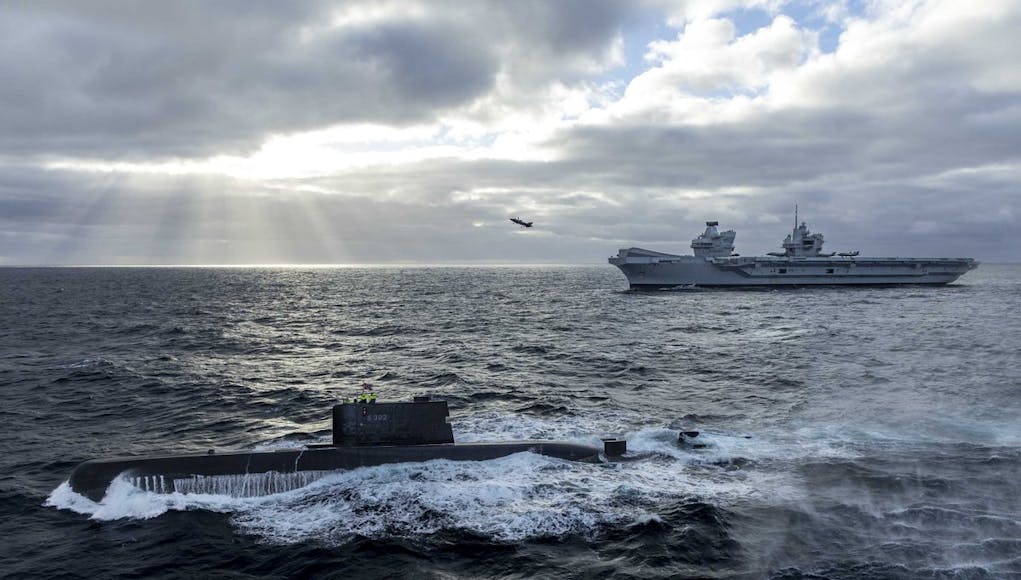
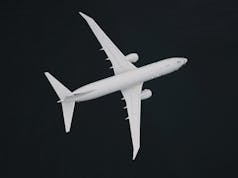

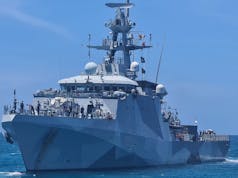
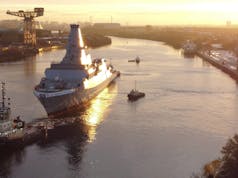
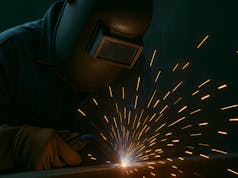
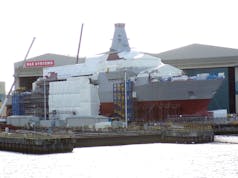





Looks like you were right again Deep 32, She has returned to the North sea rather than the Med. Will we ever know the outcome of this sub encounter though ?
“Oh yes we did!” “Oh no you didn’t!”…”We saw you…..”
😆
It’s all about who shouted “Bang” first
It’s all about the money picture from the attack scope…..pictorial evidence of shouting bang..
“One Ping” ought to have done it. 😉
Fair point, “Bang” would likely come across quite garbled through that much water. In that case, time stamp is essential!
I remember the back and forth of the Indian Air Force VS the RAF 😆
Me too…… lol, Typhoons lost every encounter wasn’t it ?….. Pissed myself personally. !😆
If I recall the Typhoons were not allowed to engage in BVR (use AMRAAMS) and according to one source had “One hand tied behind their back”. Similar piece with the US F15C which was only Sidewinder enabled in a 6 x F15C vs 18 x Su30s.
Clearly the BS cup floweth in india.
It’s actually standard practice in exercises to even up the odds otherwise no one will learn anything.
The real exercises are the red flags where the UK, France, Australia and the US compete with their very best against the best US 4th Gen aircraft and they get slaughtered.
Training against Indian SU30’s is great training though primarily because they can learn how to spoof Russian radars.
Let’s be honest the Indian Airforce needs the morale boost as well.
Tornado F3 did pretty well many years back. Raised a few eyebrows in certain quarters.
Once it had its latest generation radar and AMRAAM it became a pretty capable air to air platform. Lots of speed and range.
Resourceful Pilots too at that particular Red Flag..
Once it’s useful it was retired 😂😂😂
I don’t think the Indian SU30s used the radar in the exercises with the U.K.
There were lots of restrictions on the exercises in the U.K.
Perhaps this has changed in other exercises but the one that people bang on about there was no radars, ECM etc.
Them Yanks are super in exercises..Real thing ..Black Hawk down…
Doubt that very much.
Hi mate, I believe that she is going to the Med at some point, but as part of the planned CSG23 ops and not due to the crisis in the Eastern Med.
The Subtacex will probably be analysed from the UK perspective back at DSTL, and a report will most likely follow, copies of which will go to the Norwegians too I imagine. Not sure whether or not the Norwegians have the same analysis facilities as we do.
Yes, i read that too, but I doff my hat once again to your accurate comments after I suggested she might be off to the Med to back up the assets already sent. I would love to know how the Sub faired though….. Hopefully we will never be told……..
Knowing 820nas, that sub’ll have sonaboy itus. They are relentless. 👍👌Wonder if the aircrew are ex submariners? 😳
This might be a clue: “Additionally, HMS Queen Elizabeth and her Carrier Strike Group showcased their medical capabilities, including advanced resuscitation techniques, trauma surgery, and casualty evacuations.”
Well it is bloody cold up there !
Implying the Levant for evacuating refugees? or something else entirely
It won’t be. Medical training rarely flows directly from exercise losses, as the scenarios generally need to be thought out and preplanned by the excercise staff to ensure realistic training benefit for the medical staff.
Even in Light Infantry exercises, where use of TES or Simmunition can provide much better approximations of what injuries are sustained than in ship to ship combat (where somehow the effect of a torpedo would have to be modeled and the casualties caused within determined), the actual medical training tends to be fairly limited compared to purpose designed med scenarios.
I’ve seen medics throw their hands up in frustration before when their casualties have been exercise killed by TES because they’ve tried to treat a casualty rather than do the stupid time wasting button press gimmicks that TES requires you to do (and yes it’s actually time wasting, it’s a design feature to force soldiers to spend time dealing with a casualty rather than just throwing a Tq at them and saying “get back in the fight.”)
Anyway, long way of saying that if they’re going to be practicing something even half as complex as ALS and Trauma Surgery, then you can bet those scenarios would have been preplanned regardless of whether the Submarine scored a hit or not.
It is about learning. Also, a great way for the crew of H.M.S. Queen Elizabeth to have some excitement!
I agree…..A couple of years German submarines of the 206 Alfa class took part in an exercise off the US east coast. Their task was to sink an US Carrier and they did a pretty good job in penetrating the screen undetected and simulated sank USS ..forgot the name…and escorts. HNoMS Utstein is by far more advanced compared to 206 A…..I could imgagine that they fulfilled their mission.
Every time I see a picture of a QE2 class, I think they are a fantastic looking ship.
I’m really warming to them too. At first the twin-bridge design annoyed me hugely, but the layout seems to work
So, has the lift been fixed ?
Yes, apparently they “Cannibalised” POW again…… Or so I read in an SNP news letter. Or was it the Mirror ? 😄
Same thing
Probly reported by Pravda,they probly read all this to gain insight,funny the Russians don’t publish what their up to maybe they don’t want us to learn about their manoeuvres?
POW is in USA and training with US Navy
The control tower on an aircraft carrier must be visible to radar from quite a distance. So why has ours got TWO?
How to drive the ship at the front and land aircraft at the back on a 300 meter long ship, answers on a post card.
I’d say that two of the nicely proportioned islands on a QE, complete with angling et al, will have much less RCS return than the square monstrosity that is a Nimitz island
To be sure to be sure 🙄.
Ours has two because of the position of the funnel uptakes essentially. I’ve kind of gone over this in depth a few times before but essentially you have a few choices when it comes to conventional propulsion:
1) You trunk the uptakes together internally. Basically inside the ship you make some piping, and direct the exhaust fumes into one big funnel that goes up and out of the ship. This costs internal space that can be used for Hangars, storage etc, pumps more heat into the ship, and means it’s harder to expel exhaust since it needs to go through various tubes. But, you can have a smaller tower. It’s quite rare these days IMO, but Giuseppe Garibaldi kind of has a hybrid between this and 2
2) You have one, very big Island with multiple funnels, or trunk together above the flight deck with a very big island. This is the most common configuration in use. Baisically you take up more of the flight deck, but you save on interior volume. See the Invicibles, and Cavour for examples of this. You get a bigger island, but that also means you can space out our flyco and bridge, or keep auxillary positions far away from the primary but still on the island, as seen on this Izumo class (notice the flyco at the rear of the Island, and the Bridge at the Front). A large Island also means you have an easier time desiging in your radars etc.
3) Instead of having 1 large Island, or having a lot of internal trunking, you just build two completely separate islands. You gain the advantages of not loosing interior space, while keeping more deck space for aircraft operations, and keeping your flyco/bridge physically separate (and places for secondary bridges etc). Obviously for examples of this see the Queen Elizabeths, but also Trieste, and the South Korean CVX program. Also not entirely convinced that two smaller towers present a bigger radar ping than one big one, nor that the relatively small towers present a bigger radar return than the remain 70,000 tonnes of ship.
This was going to include links to pictures but I’m posting them seperately in a follow up to avoid going into approval purgatory.
Option 1 (ish)
Giuseppe Garibaldi
Option 2:
Invincible
Cavour
Izumo
Option 3
Queen Elizabeth
Trieste
CVX
From directly in front or behind the radar return would be similar to the long island type. Whereas from the side, the return for the twin island should be smaller as there’s less surface area to reflect the transmission. As compared to the Invincible Class with their long island.
Among other reasons, it separates engine exhaust funnels and provides a fire break such that of one does get hit by a missile the other will have a good chance of not being damaged and you can continue operations to back up systems. Also radar visibility is far more complicated than 2 is bigger than 1 big one….
Bit off topic any one heard anything about medium helicopter program
Shhhh, the government are just retiring all the types to be replaced. All they need are replacements for puma and dalphin. So 24 max.
Wildcat will become special forces with a civilian contractor filling in the Cyprus and jungle roles.
Sorted, no helicopters needed.
I don’t think they have any money for New helicopters
Well you would think with everything going on in world they would just do block buy of about 60 Blackhawks be done with it
The Bells of 84 Sqn and 7 Flight have already been retired, “replaced” with Puma.
Wildcat is not in the FMH planning mate, and I don’t think it carries enough people to replace the Dauphins for their particular role.
Though some FAA Wildcat do serve in a SF “support” function in the MCT area.
From what I have read re the ongoing budget, there is money, but that money becomes available next year, or after, not now. Which is why it has been deferred. A ten year equipment budget is a very complex thing with monies allocated for thousands of different things at different times.
I’m confident it will happen, as a medium helicopter is needed. I am NOT confident the needs of the military ( otherwise known as WHAT they actually want to do the job ) will win out against the need to support UK industry, jobs, and the same old debate we have had here many times. We know the benefit to UK PLC does not migrate back into the MoD budget like it should do.
So expect 20 to 25 of something eye wateringly expensive while the 40 odd cabs they replace go to the wall, numbers are cut, and we get the same old complaints of cuts yet again.
For my preference, see Geordies comment above!
Expect government announcement soon that they have already completed the medium helicopter project with the purchase of Pumas in 1971.
They did the same with HS2 cancelation savings. 😀
Yup, I hear them Flying around quite often.
Now as the US lost in the past to a swedish sub, as in it sank a US carrier in war gaes, the US leased a Swedish sub to understand how it did so, are we hoping that we faired a little better than the fire as many bulits as you can n hope you hit something brigade?
https://nationalinterest.org/blog/buzz/war-games-swedish-stealth-submarine-sank-us-aircraft-carrier-116216
For context.
Back in the early 60’s HMs/m Rorqual sank the US Enterprise on such an exercise. The good old days of diesel boats
https://www.forces.net/services/navy/hms-queen-elizabeth-fends-submarine-attack-during-exercise-norwegian-navy
How did that work out for them
It would be nice to see our aircraft carriers with a full complement of aircraft. Sailing around the world with half a dozen aircraft when she was designed to carry over four dozen. Odd how UkGov can find tens of billions for Ukraine. But just scraps for9 UK defence.
The American Navy did the same excersise years ago… I didn’t go well for them. Embarrassing.
All this would be funny and entertaining were it not for the inordinate cost of these floating white elephants, which the long suffering British taxpayers are funding.